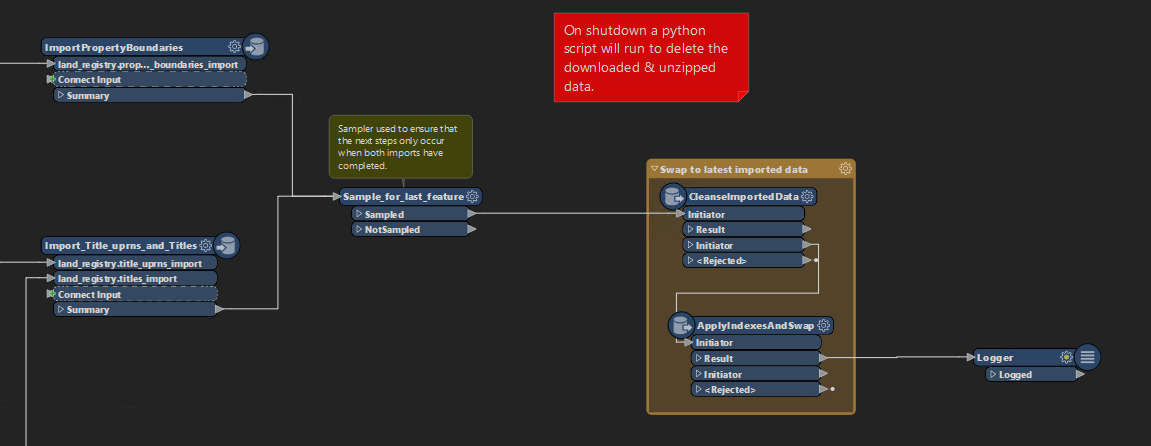I have a workbench that imports a lot of data into PostgreSQL (~90m records across 3 tables, 1 containing spatial data) and we've identified a possible need to vacuum the tables.
The data is "cleansed" post-import via a SQLExecutor that deletes data, creates data if necessary. However, we're unable to vacuum analyze (Analyze is fine) the data once that occurs as it appears that the SQLExecutor wraps commands in a Transaction Block - which means we cannot Vacuum.
Any ideas on how we can perform vacuum via the SQLExecutor or have another strategy we can utilise? I am unsure whether using the writer's post-write execution of SQL in a parameter is performed before or after the VacuumAnalyze option that FME provides.
I've seen some information around setting Autocommit to on/off within the SQLExecutor but this does not work in the newer versions of PostgreSQL.
We are using an Azure managed database







